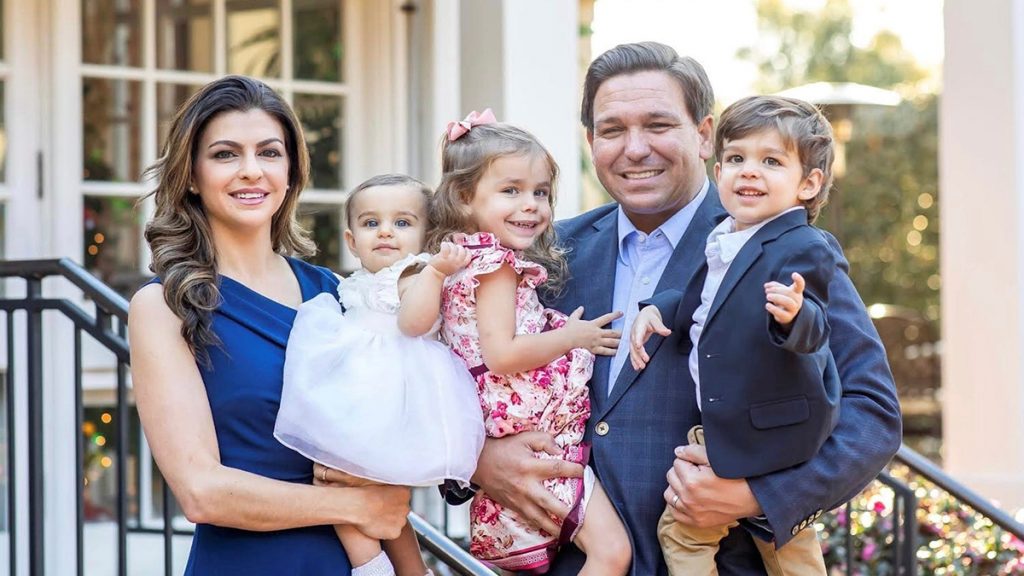Chemotherapy for Breast Cancer
- Florida residents received great news yesterday when Gov. Ron DeSantis announced that his wife and the state's first lady, Casey DeSantis, has finished chemotherapy treatment for breast cancer.
- What is next for Casey? It is hard to say, as the DeSantis family has not disclosed the stage or type of Casey's cancer.
- The stage and type of her breast cancer would determine the best course of treatment. But we know that she received chemotherapy, which is a common treatment option.
"She ran that gauntlet, she's doing well, and we look forward to having more good news over the next few weeks and months," the governor said. He added that Casey, 41 and a mom of three, "fought very hard" and "responded very well" to her treatment regimen.

For example: What is the size of the tumor, and are lymph nodes or other parts of the body involved? The biology of her tumor is also important: Is the tumor positive for the HER2 receptor or hormone receptors? Did Casey inherit an increased risk for breast cancer and/or did her lifestyle increase her risk?
These are all important questions that need answers before devising a treatment plan.
"That's really what makes treating breast cancer such an exciting and hopeful field today, is that there are so many different ways that we can target and think about treating breast cancer patients, no matter what stage of disease that they've been diagnosed with," Dr. Elizabeth Comen, a breast oncologist at Memorial Sloan Kettering Cancer Center, tells SurvivorNet.
Chemotherapy for Breast Cancer
Chemotherapy for breast cancer uses strong drugs to kill cancer all over the body. It is possible that patients get this treatment to shrink a tumor before surgery, afterward to get rid of any remaining cancer cells or on its own if the patient cannot have surgery.
Whether or not to have chemotherapy can also be the patient's choice, depending on their age, the type of cancer they have and its stage.
If the patient's breast cancer is triple-negative, which means the three main types of receptors estrogen, progesterone and the HER2 protein do not fuel the cancer, chemotherapy is typically the treatment. This is because the cancer does not respond to certain targeted therapies.
Women who are diagnosed with HER2-positive breast cancer have high levels of the HER2 protein on the outside of their cancer cells. For patients with early-stage disease, meaning they have relatively small tumors and no lymph involvement, a number of HER2-directed therapies have dramatically changed the landscape. These include chemotherapy drug trastuzumab (brand name: Herceptin), as well as pertuzumab (brand name: Perjeta), which is a monoclonal antibody used in combination with chemotherapy.
Side Effects
While chemotherapy is great for treating cancer, it is "a disruption of life," Dr. Mike Janicek, a gynecological oncologist at HonorHealth in Scottsdale, Ariz., tells SurvivorNet.
"There is loss of hair, there is loss of well being, but it is very manageable nowadays," he adds.
What Are the Side Effects of Chemotherapy?
These side effects are what give chemotherapy a notoriously bad reputation. But modern medicine has come a long way. While some side effects like nausea and hair loss can still be really problematic, there are many ways doctors can help patients cope from recommending a good wig-maker to adjusting the chemotherapy dosage. What is more, not every type of chemotherapy will cause these harsh side effects.
Make sure to consult with your doctor if you are concerned about these side effects of chemotherapy.
Casey's Cancer Battle
Gov. DeSantis announced in October 2021 that his wife, Casey, 41, had been diagnosed with breast cancer. And in December, Casey spoke publicly for the first time about her diagnosis, revealing some new details about the timeline of her diagnosis.
She told a crowd gathered at the Moffitt Cancer Center in Tampa, Fla., that she did not experience any symptoms initially, but a vague sense of uneasiness drove her to schedule a visit with her OB-GYN.
Her doctor did not see any cause for concern, but Casey could not shake her suspicion. One month later, she called again to request a mammogram. This time, her concerns were confirmed she was diagnosed with breast cancer.
She began treatment chemotherapy shortly after. Now that she is finished with treatment, Gov. DeSantis says that she is "doing well."
Contributing: SurvivorNet staff
Learn more about SurvivorNet's rigorous medical review process.


